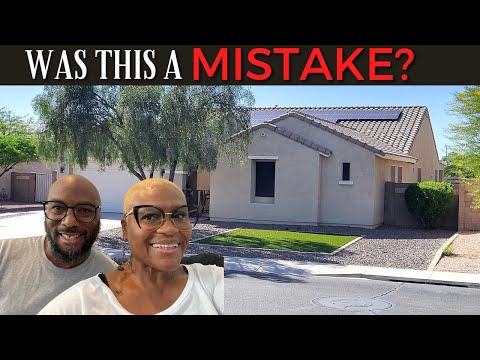Moving abroad can be exciting, but it raises tough questions. One big question is: “Should I rent or sell my house?” Both choices have pros and cons, and your decision impacts your finances and future plans.
If you’re feeling overwhelmed, let We Buy Houses Cash Florida home buyers take some of the burden off of your shoulders.
With just five minutes of your time, we can give you a no-pressure fair cash offer on your Ft. Walton Beach rental house. It’s really that simple. Contact us for a free cash offer today!
This article will break down the key factors to help you decide what’s best for you. Keep reading—your answer might be closer than you think!
Key Takeaway Points To Consider
- Selling your house gives you fast cash and cuts ties with property management, but you lose future equity growth.
- Renting out your home creates steady passive income but comes with risks like tenant issues, maintenance costs, or unpaid rent.
- A short stay abroad might favor renting for flexibility; a long-term or permanent move may lean toward selling.
- Taxes play a role: Rental income is taxed as passive income, while capital gains taxes apply if you sell the property.
- Property management companies can help manage rentals from overseas but charge 8%-12% of rental income in fees.
Factors to Consider When Deciding
Moving abroad is a big step, and your house decision impacts both money and peace of mind. Think carefully about your timeline, finances, and how the market looks right now.
Financial goals and stability
Selling your house gives you a large sum of cash. This can help you buy a new home abroad, pay off debts, or invest elsewhere. It’s a clean break and removes the worries of property management while living overseas.
Renting out your home creates steady rental income. This extra money could cover costs like mortgages or expenses in your new country. But renting also comes with risks, like unpaid rent or maintenance bills.
Think carefully about what fits your financial needs best.
Duration of stay abroad
Your time abroad plays a big role in this choice. A short stay, like one to two years, might make renting your house the smarter option. You could earn passive income through rental property while keeping your home ready for your return.
Longer stays or permanent moves may lean more toward selling since managing rentals from overseas can be tricky and costly.
If you’re unsure about how long you’ll be gone, renting gives flexibility. Short-term leases allow you to use the home for visits or trips back. This way, you’re not burning bridges with something so valuable as real estate assets.
Think ahead: Will property management costs eat away at any rental income? Will housing market trends increase your home’s value during that time?
Current housing market trends
Interest rates are high, which can slow buyer demand. In many areas, home prices remain steady or even rise due to limited supply. If your house is in a hot market with strong property value growth, selling might be more attractive.
Popular cities with high rental demand create good opportunities for landlords. A smaller home in a central location may rent faster than larger suburban properties. Study your local real estate market and rental trends before deciding to rent or sell.
Pros and Cons of Selling Your House
Selling your house can feel like tearing off a Band-Aid—quick but impactful. It might free up cash fast, yet it could mean letting go of long-term equity growth.
Pros of selling
You get a lump sum of cash right away. This can help pay for moving costs, reduce debt, or fund new investments. No more mortgage payments, property taxes, or homeowners insurance means fewer bills to worry about.
Long-term capital gains tax rates may apply if your house was your primary residence for at least two out of the last five years. These rates are usually lower than ordinary income tax rates.
Selling also removes the hassle of property maintenance and dealing with renters while abroad.
Cons of selling
Selling means no more equity growth. Housing prices often rise over time. By selling, you miss out on that potential increase in value. If the market is low now, it could lead to a financial loss later.
Capital gains taxes can also sting. If your home isn’t your primary residence for at least two of the last five years, you may owe taxes on profits from the sale. Sorting and clearing personal belongings adds stress too.
Once sold, there’s no easy way to return if life abroad doesn’t pan out as planned.
Pros and Cons of Renting Out Your House
Renting can bring passive income, but handling tenants and property upkeep takes effort. Weigh the rental market’s demand, property management costs, and your time before deciding.
Pros of renting
Renting out your house can create steady passive income. It helps cover your mortgage, property taxes, and maintenance costs. Over time, this extra cash flow can add up or even fund your life abroad.
You keep the option to return to your home later. If the housing market improves while you’re away, you might benefit from future appreciation. Tax deductions on things like property management costs and depreciation also reduce taxable rental income.
Cons of renting
Managing a rental property from another country is tough. You can’t be there to handle emergencies or deal with tenant issues quickly. Hiring a property management company helps, but their fees cut into your rental income.
Maintenance costs and unexpected repairs also add up fast.
Choosing the wrong tenant leads to big problems. Bad renters might miss payments or damage your home. Evicting them becomes expensive and time-consuming—especially if local laws favor tenants.
These risks make renting less predictable than selling outright.
Tax Implications for US Expats
Taxes can get tricky if you keep or sell your home while living abroad. You’ll need to factor in rental income, property sales tax, and how they affect your US taxes.
Taxes on rental income
Rental income is considered passive, meaning it isn’t from a job or active work. It’s taxed in the U.S. at rates between 10% and 37%, based on your tax bracket. You’ll need to report this income using IRS Form 1040 (Schedule E).
If you manage your rental property from abroad, don’t forget forms like 4562 for depreciation or a possible 1099-K.
Deductions can lower taxable income. Eligible expenses include maintenance, HOA fees, insurance, utilities, legal costs, and even advertising for tenants. Depreciation also reduces your tax bill but could lead to depreciation recapture taxes if you sell later.
Keep clear records of all costs—you’ll need them when filing!
Taxes on property sales
Selling your house triggers capital gains tax. If you owned the home for over a year, long-term capital gains rates apply at 0%, 15%, or 20%, depending on your income. For homes held a year or less, short-term capital gains are taxed as regular income at rates between 10% and 37%.
You might qualify for the Section 121 exclusion if it’s your primary residence. This allows single filers to exclude up to $250,000 of profit from taxes or $500,000 if married filing jointly.
To qualify, you must have owned and lived in the property for two of the last five years before selling.

Key Steps to Make Your Decision
Think about your money plans and what this move means for you. Weigh the hassle of renting against selling, then pick what fits best.
Evaluate your financial needs
Identify your financial goals before deciding. Selling can give you a large lump sum quickly, which helps with big expenses or investments abroad. Renting offers steady passive income but comes with ongoing property management costs, taxes, and upkeep.
Check other income sources you’ll have while overseas. If your job covers expenses and leaves room for savings, renting might work well. Need cash upfront? Selling may be the better option instead of juggling a rental property from afar.
Assess property management options
Hiring a property management company could save you time and stress. They handle tenant issues, collect rent, and take care of property maintenance. Reliable companies also focus on keeping tenants happy, which reduces turnover.
Management fees typically range between 8% to 12% of monthly rental income, so factor this into your budget.
For a DIY approach, tools like AirDNA can help you price the home and estimate potential earnings in the rental market. Be prepared for hands-on work with repairs and finding tenants if you skip professional help.
In Summary
Choosing to rent or sell your house while moving abroad isn’t easy. It depends on your goals, finances, and future plans. Selling gives quick cash, but renting can create steady income.
Think about taxes, costs, and how long you’ll be away. Talk to experts like real estate agents or accountants if you’re unsure. Make a decision that fits your journey ahead!
For more specific situations, such as wondering can I sell my house if my husband is in jail?, click here for detailed guidance.
FAQs about moving abroad should you rent or sell your house
1. Should I rent or sell my house when moving abroad?
It depends on your goals and financial situation. Renting can provide passive income through rental property, but selling might be better if you want to avoid property maintenance or capital gains tax later.
2. What are the benefits of renting my house while living abroad?
Renting can generate rental income, build equity, and keep your primary residence as an investment. A property management company can handle tenancy issues and upkeep for you.
3. Are there tax implications if I sell my home before moving abroad?
Yes, selling may trigger capital gains tax depending on your cost basis and how long you’ve owned it as a primary residence. Consult a real estate agent or tax advisor to understand potential liabilities.
4. How do I manage a rental property from another country?
You can hire a property management company to oversee leasing, collect rent, handle repairs, and deal with tenants while you’re away.
5. What should I consider about taxes when deciding between renting or selling?
If you rent out the home, you’ll need to report rental income on your U.S. tax return and possibly pay foreign taxes too (double taxation could apply). Selling might simplify things but could involve depreciation recapture or estate taxes.
6. Can housing market trends affect whether I should rent or sell?
Absolutely! If the real estate market is strong for sellers now but weak for rentals in your area, it might make sense to sell instead of waiting for uncertain returns from leasing out the home later.
Still have questions or want to know how much we can pay for your home?
Feel free to give us a call to (850) 499-0532 or fill in the secure form. Our offer is 100% free, and you have absolutely no obligation to accept it. What do you have to lose?
Additional Real Estate Tips and Resources For Selling Your Ft. Walton Beach Home
What you shouldn’t fix when selling a house
Tax questions to ask when inheriting a house
Options If Your Behind on Your House Payments
Tips for selling a house in the Winter
Do I need the original deed to sell my house
Can I Sell My House if I’m Behind on Payments
Can I Sell My House and Still Live in It Rent Free
The Benefits of Accepting a Cash Offer on Your House
How Much Does it Cost To Sell a House
Can I Sell My Parents Home With Power of Attorney
If I Sell My House For $300k How Much Do I Get
Can I Still Sell My House If It’s in Foreclosure
Can I Sell My House Rent-to-Own If I Have a mortgage


